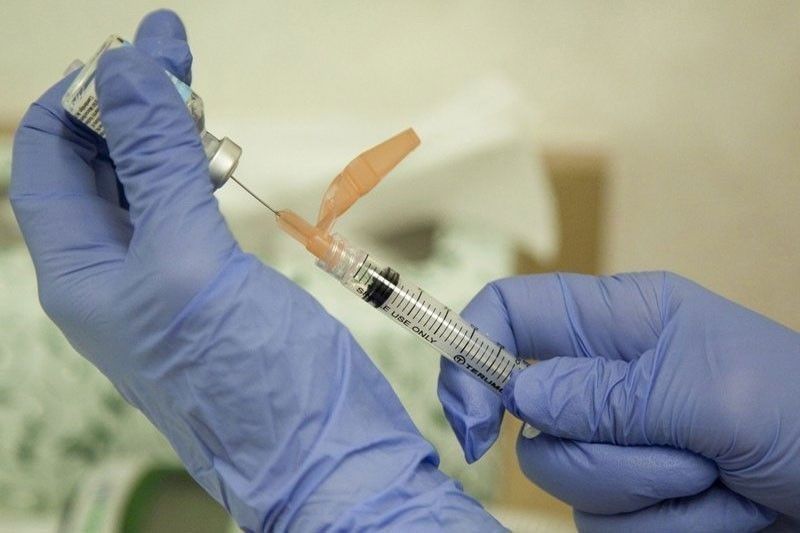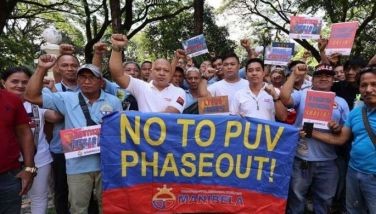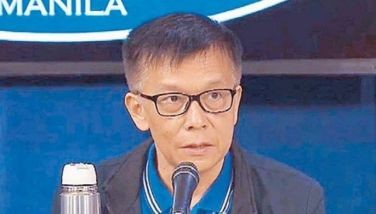Unicef to ensure all countries get COVID-19 vaccines

MANILA, Philippines — The United Nations Children’s Fund (UNICEF) will be leading procurement and supply of coronavirus disease 2019 vaccinations to ensure that all countries have access to initial doses when they become available, the agency has announced.
The vaccine procurement and distribution effort, involving over 170 economies, has the potential to become the world’s largest and fastest ever procurement and supply of vaccines, as part of the global vaccine plan of the COVID-19 Vaccine Global Access Facility (COVAX Facility) led by Gavi, the Vaccine Alliance.
“This is an all-hands on deck partnership between governments, manufacturers and multilateral partners to continue the high-stakes fight against the COVID-19 pandemic,” said Henrietta Fore, UNICEF executive director, over the weekend.
“In our collective pursuit of a vaccine, UNICEF is leveraging its unique strengths in vaccine supply to make sure that all countries have safe, fast and equitable access to the initial doses when they are available.”
UNICEF is the world’s largest single vaccine buyer, procuring more than two billion doses of various vaccines annually for routine immunization and outbreak response in behalf of nearly 100 countries.
In collaboration with the Revolving Fund of the Pan American Health Organization (PAHO), UNICEF will lead efforts to procure and supply doses of COVID-19 vaccines in behalf of the COVAX Global Vaccines Facility for 92 low- and lower middle-income countries whose vaccine purchases will be supported by the mechanism.
UNICEF will also serve as procurement coordinator to support purchases by 80 higher-income economies, which have expressed their intent to participate in the COVAX Facility and would finance the vaccines from their own budgets.
These efforts by UNICEF will be done in close collaboration with the World Health Organization (WHO), Gavi, the Vaccine Alliance, the Coalition for Epidemic Preparedness Innovations (CEPI), PAHO, World Bank, the Bill and Melinda Gates Foundation and other partners.
The COVAX Facility is open to all countries to ensure that no country is left without access to a future vaccine for the coronavirus.
Some 28 manufacturers have shared their annual production plans for COVID-19 vaccines –through 2023 – with UNICEF, which in a market assessment said the drug makers are willing to collectively produce “unprecedented quantities” of vaccines over the coming one to two years.
However, manufacturers signalled that investments to support such large-scale production of doses would be highly dependent on, among other things, whether clinical trials are successful, advance purchase agreements are put in place, funding is confirmed, and regulatory and registration pathways are streamlined.
Meanwhile, Science and Technology Secretary Fortunato dela Peña said that the web-based disease surveillance tool that his department turned over to the Department of Health (DOH) can be used for the upcoming COVID-19 vaccine clinical trials to be conducted in the country in the fourth quarter of the year.
Dela Peña said that the features and capabilities of the Feasibility Analysis of the Syndromic Surveillance using Spatio-Temporal Epidemiological Modeler For Early Detection of Diseases (FASSSTER), such as its ability to identify hotspots of COVID cases in a certain locality, makes it useful for the vaccine clinical trials particularly in selecting the best areas where to get volunteer-participants.
“Because to gauge the effectiveness of the vaccine, you have to do your inoculation in the areas with a high number of COVID-19 cases or the hot-spot areas,” Dela Peña told The STAR.
Monitoring the participants, he said, will be made easier with the FASSSTER system.
The DOST-Philippine Council for Health Research and Development (PCHRD) and the Ateneo Center for Computing Competency and Research (ACCCRe) formally turned over last Friday the FASSSTER surveillance tool to the DOH to use in its battle to contain the pandemic.
Dr. Lilibeth David, Heath Undersecretary for health facilities and infrastructure development, said that the FASSSTER tool, in its pilot use, had shown effectiveness in helping the DOH to implement five main strategies to contain and eventually eradicate COVID-19 – prevent, detect, isolate, treat and recover. – Rainier Allan Ronda
- Latest
- Trending


























